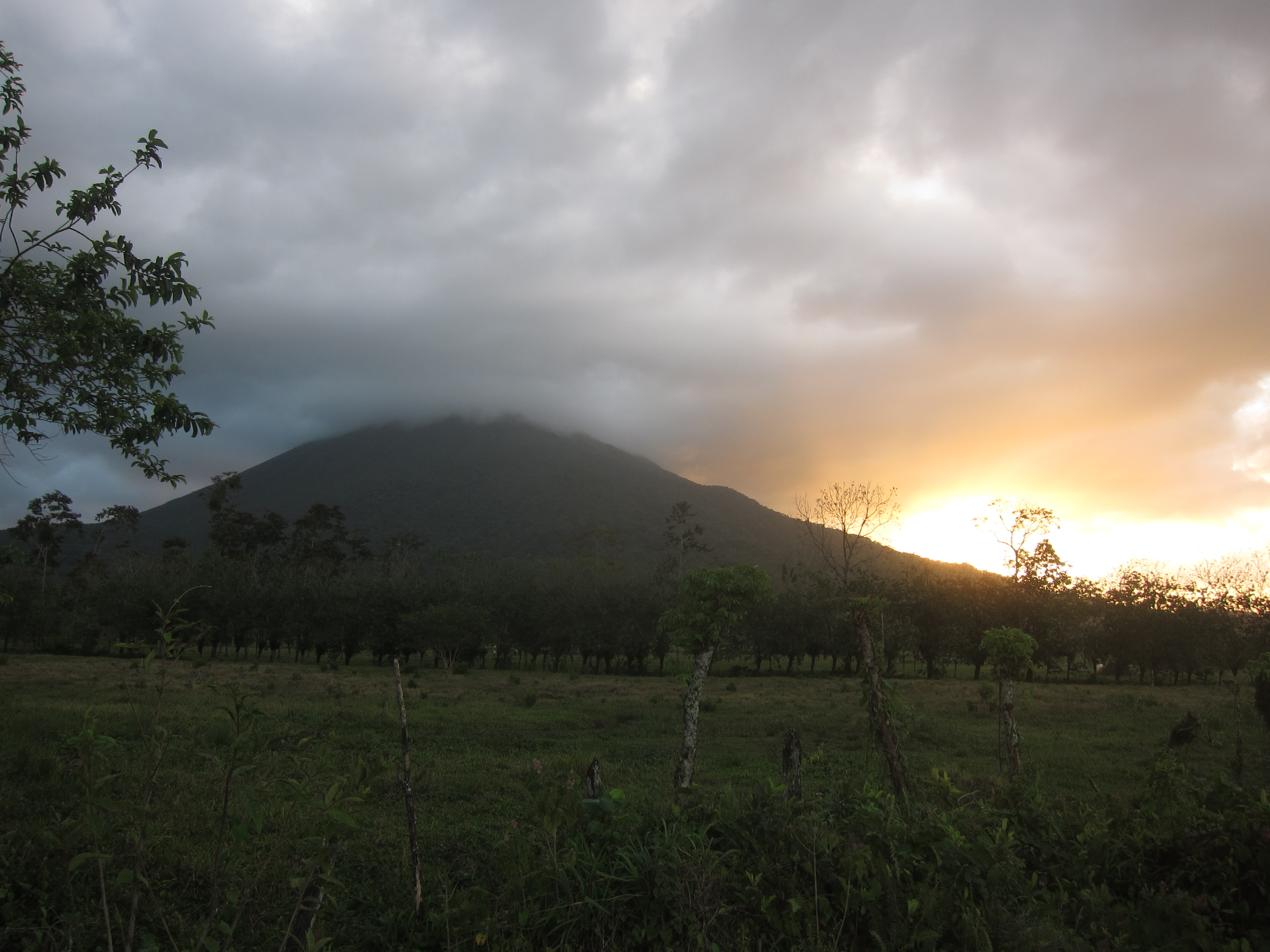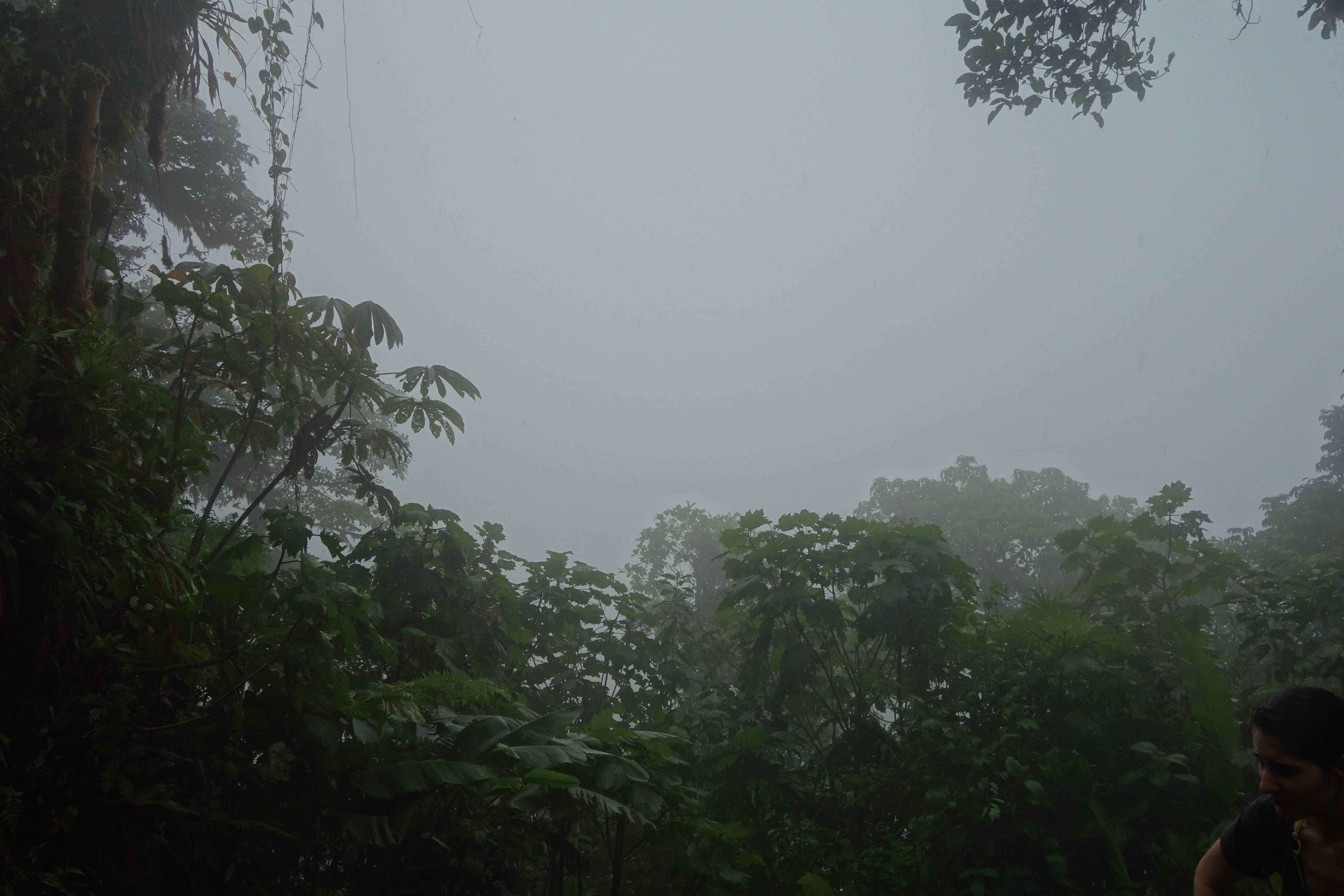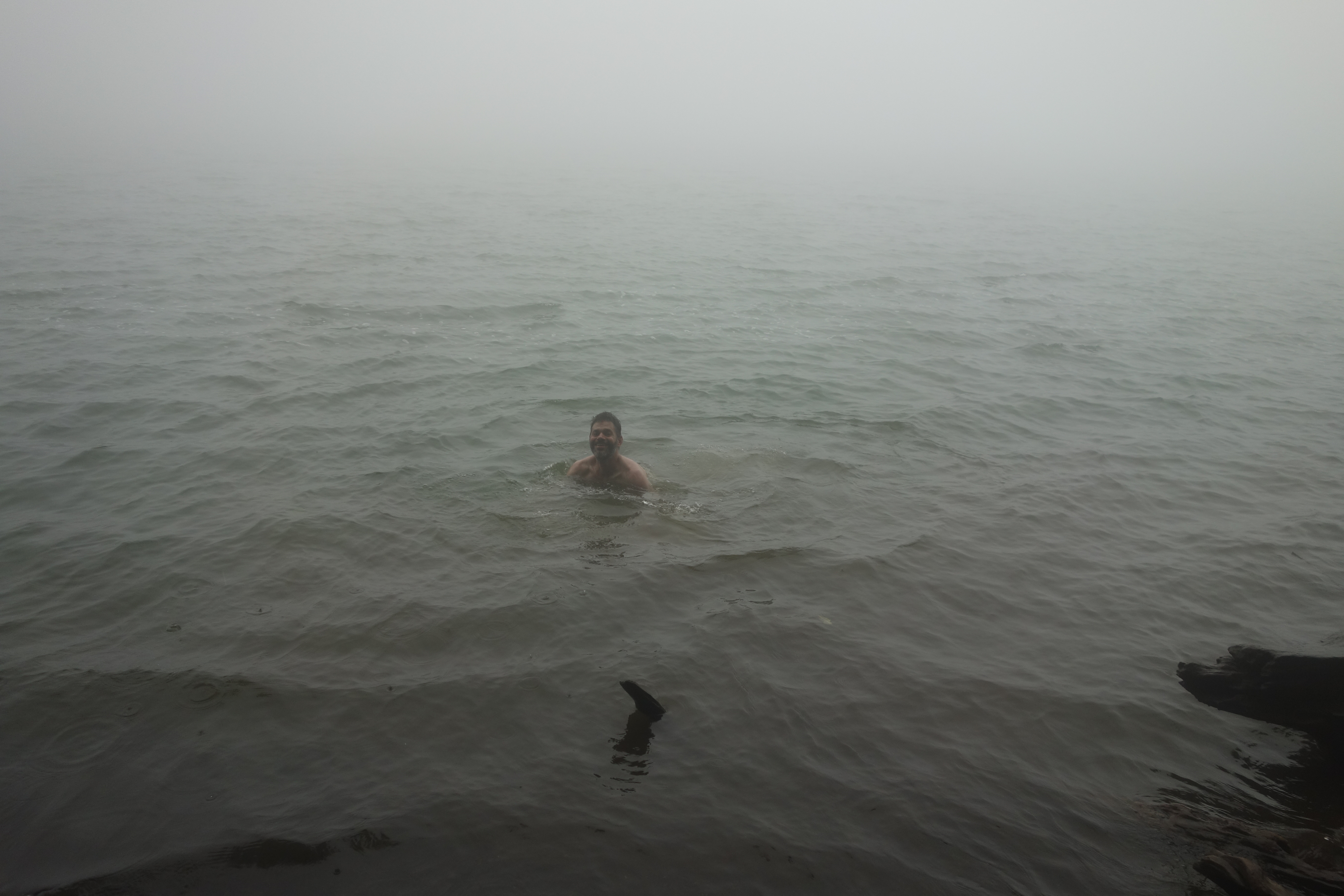I have no stake in the traveller vs tourist debate. I think anyone who goes anywhere is a little bit of both. If there were a Kinsey scale, with 1 being a tourist and 10 being a traveller, I’d put myself at about 7 in relation to my fellow American’s, but 5 compared to the rest of the world. If you are in a place that is not where you are from, you are to some degree a tourist, no matter how you want to paint yourself.
I do make a distinction is between travel and vacation. Vacations are travel and travel is a vacation, but the space where those two circles overlap is much smaller than traveller/tourist.
Vacations are planned; hotels are booked, transport is arranged, tours are scheduled, days are planned out to maximize what you can see and do. You have a budget you are pretty sure you can stick to. With only a couple weeks (if you are an American like me; the German, French and Spanish are laughing right now)it makes sense to use that time fully, to avoid time wasted by leaving things to chance. Who wants to spend the first half of arrival day, of ten days in Instanbul, figuring out the best way to get from the airport into the city, and then trying to find a hotel, and then the rest of the trip going aimlessly from place to place figuring out what to see.
Travel lasts longer, even though, since you are not at work, it is still a vacation, if a very extended one. In travel, more is left up to chance, so more things can go wrong. Hotels aren’t booked, they’re just found on arrival. The same goes for transport. Is there a bus going from A to B, or do you have to connect via C? The weather becomes more of a factor. You can pick your time of year, but because of the length, you’re often crossing seasons, or trying to stay just slightly ahead of them. Stuff comes up, or gets stolen, and your budget goes to hell. You didn’t do any research and you end up someplace during a major local holiday, and all the hotels are booked, or the buses aren’t running, the banks are closed and you have no cash, and nobody wants to take your credit card. Your camera breaks, but you had thought to bring a back-up.
Travelling solo, you’re going to be away from people you love for a length of time that you don’t really want to think about, but that doesn’t stop you from having a page in your journal that hash marks out the days you’ve been gone like a prisoner counting time served, so you can figure out the days you have left until you see them again. You don’t have the safety net of another person. You eat alone. You have no one to turn to and say “Wow, I can’t believe I’m here, seeing this” and somehow, sometimes that takes away from the moment. On a bad day, which out of one hundred travelling days, there are going to be a few, you’re left with just yourself to complain to.
If you don’t speak the language well enough to have an actual conversation with the locals, you either find yourself spending a lot of time, isolated, alone in the crowd, observing, or among other travellers. Travellers, frankly, can be a bore, and I won’t bore you with why.
Travel is a vacation, but it also becomes a job; you put yourself somewhere far away, and now you have to get home. And if someone were to counter that maybe a true traveller didn’t have any home to get back to, I would argue that a home to get back to is implied in the definition of travel. If you have no home, where are you travelling from, and to where? You’re something, but I don’t think that thing is a traveller.
In Arenal, Costa Rica, the rainy season started early, so I spent most of my time in my hostel. The volcano, which is what you are there to see, never came out.

I tried to hike, with four people I met, the trail up to a view of the volcano and then to a crater lake. It started downpouring half-an-hour in, and didn’t stop for the next two-and-a-half hours. The trail, steep and difficult when dry, turned into a river of mud.
This is the view of the volcano.

This is me swimming in the lagoon.

At a point, it became fun. The ridiculousness of being out there, soaked and covered in mud. Why would anyone do this? Because what else is there to do?
I crossed from Costa Rica to Nicaragua by boat. It was confusing. Most people cross by the land border, which has it’s own hassles but this seemed like more of an adventure. I passed through Costa Rican immigration and asked where to buy a ticket to for the boat. It was just a card table set up across the street. The people who sold the tickets seemed completely disinterested in selling one to me. I eventually got one after much pestering in bad spanish. I was the only gringo on the boat. The ride was lovely and beat crossing a hot, dusty and crowded land border occupied by scammers, touts and drug runners.
Then there was an eleven hour boat ride to Ometepe Island. I slept in a canvas beach chair and eventually on the deck itself, among a bunch of Nicaraguans and a few Germans, arriving at one am, hoping that there would be a taxi willing to take me seven miles to my hotel, and that someone at the hotel would be up to let me in. If not, then what? But it worked out. If it hadn’t? I don’t know. I just had to trust.
On Good Friday, the buses weren’t running, so I walked seventeen miles rather than pay $40 for a taxi or change my plans.
When I got back to the mainland, my research had told me the only way to get to the dock was taxi or walk another 2.5 miles. I was walked out, and just wanted to get to my destination, Granada, so I opted for the $5 cab. The driver tried to find other people to split the fair and failed. He asked me where I was going, because the bus station was just a transfer point, and I told him Granada. This is where my method of understanding most of the words and using context to supply the overall meaning failed me. I thought he was telling me that the buses were busy that day and we needed to leave right away to get the next one. That made sense to me because they left of the hour, and it was 10:45am. I figured he was just trying to get me in his taxi, instead of the bus that would take me there for cheaper that I later discovered does exist. I asked him how much in cordobas, not dollars. He said, “Ochenta”. 80. About $3, lower than his original offer, but I figured I negotiated by being hesitant, and agreed.
When we turned onto the highway, it occured to me that maybe I misheard his price. Maybe he said Ochosiento: 800, or about $32. Maybe the conversation had changed in that part I didn’t completely understand and he was telling me to skip the buses, they were too busy, just take his taxi to Granada, and I just heard Ochenta because that made sense in the context of the conversation I thought we were having.
I asked him, in Spanish, since he didn’t speak English. if we were going to the bus station? He looked at me, said no, and pulled to the side of the road. I said I was confused. He said he was too. The next few minutes, which I have to say I managed pretty well in Spanish, I explained that I thought he said “ochenta” and he realized we had mal communicacion; “bad communication.” After telling me again that the buses would be difficult, and that his price was a good one, he asked with a sigh if I wanted to go to the bus terminal. I said yes, and after a moment of awkward silence, I said I would pay for the ‘mal communicacion.” So he took me back. He pointed to the massed crowd waiting for the 11am bus that still had not arrived at 11:10am in one last effort to sway me, and he almost did, but $32. He charged me an extra $3 for the mistake, and I couldn’t complain, since it was my fault.
Stepping out into the heat and the crowd, I immediately regretted it. The bus, whenever it did show up, would be a repurposed American school bus, and was going to be truly awful. I’d ridden them before in Guatemala, so I knew what was in store. I started to scan for other backpackers, hoping someone else might be going my way and we could share another taxi. I found some, but they were headed to the border with Costa Rica. But seconds later, another man approached me and said he had two other people going to Granada. The fare was going to be 300 cordobas per person, about $12. Learning from my mistake, I confirmed in Spanish “trescientos” since he had said 300 in English.
The ride was uneventful, and I was happy to not be on that bus, and I was saving $12. He asked us for the directions to our hotels, so I handed him what I had written down per the hotel owner. In Nicaragua there are no street addresses. Directions are given with regard to landmarks. In New York, my address would be ” One block west of Central Park, five blocks north of the Natural History Museum. My hotel had given three points of reference, so I figured I was okay,
When he dropped me off, he said he couldn’t go all the way to my hotel, something about he couldn’t turn around or it was a one way street, but it was right over there, he waved. I was fine with that, just happy to be there. I handed him a 500 note and asked if he had change. He checked his wallet and said no. So I handed him 300 exactly. He said, “No, tres setenta.” 370. I said, no, 300. He insisted. I asked the two german women what we had been quoted, and when they confirmed 300, I told them the guy now wanted 370. They got out and argued as well. My problem was, he was still holding my 500, and my bag was in his trunk, and it was clear I was getting neither back until I handed over the extra seventy, so I handed him 400, took my change and my backpack, and walked off to find my hotel. It wasn’t where he generally pointed, or anywhere else nearby. I saw some police officers in the park nearby and showed them my directions. They said “This is too far to walk, take a taxi.” I had been left a fifteen minute walk from my hotel. The guy misread the directions, didn’t know where he was going, or didn’t care.
The officers were helpful, adamant that the taxi should only cost 10 cordobas, “not 10 dolares.” They made this point several times. One told me to just take out my money and hand it to the driver, no negotiation. I was grateful. I flagged a cab, showed him the directions, and he quoted the correct 10 cordoba fare. I checked into my room, sorted my belongings, and emptied out my wallet to count out the money I would bring out to go find lunch. The first driver had only given me back twenty cordobas from my 400, not the correct thirty. So not only was he a liar, and incompentent, he shortchanged me as well.
This is travel. Sometimes a cab driver rips you off, or you are in a remote neighborhood in Instanbul and you end up getting “guided” by a shoeshine to a place you already knew how to get to, and he demands to shine your shoes for the exhorbitant price of $6, and you have now real choice but to let him do it and pay. Places don’t turn out to be what you thought they would be, or they turn out to be more, but you can’t stay longer because money and time and you have to move on.
There is an easier way to do this, but I choose the most difficult way. If you asked why, I wouldn’t have a good answer. Travel, I would say.
